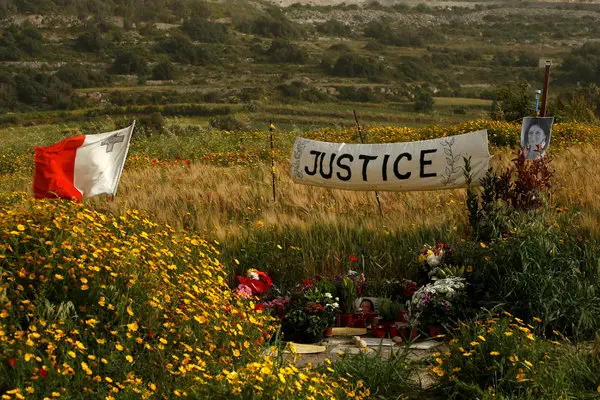
There are 33 days left in the life of this Parliament, the most disgraceful in living memory. It started out with the foreseeable re-election of Joseph Muscat with an unforeseeably larger majority over his 2013 election. Keith Schembri climbed back into his office in Castille. Konrad Mizzi was made super-minister. Chris Cardona would reach the peak of his political career, far higher than even he likely ever expected. Edward Scicluna was confirmed as Finance Minister.
Simon Busuttil and his team resigned assuming responsibility for their party’s defeat. The PN drove knives in its own back in a leadership campaign where its credentials of rational normality were scrapped in favour of Frank Portelli and Adrian Delia. The latter became party leader.
This bipartisan chaos, this collapse of ethics and even mere common sense in our political class, was just the background for the killing of Daphne Caruana Galizia, the journalist who most prominently documented that collapse.
That episode of the most brutal violence experienced in this country for decades defined the rest of Parliament’s term. These have been five years of a struggle between three forces.
There was the force of those who called for justice for Daphne, her family, their friends and supporters, and decent people of good will who preferred to let Daphne speak for them until she could speak for them no more, together with allies from the worlds of journalism, politics, and activism.
There was the force of those whose interests are best served by the forgetting of Daphne, who ignored calls for reform until they became calls for their dismissal and then they could ignore them no more. And now they are replaced by people who avoid introducing reforms by promising they would be the ones to introduce them. They neutralise their opposition by pretending to support it. But the objective remains the same: to change nothing, to do nothing, to keep all as it was when they could steal without anyone stopping them.
The third force is inertia, the indifference of too many, those who reduce the struggle for justice for Daphne Caruana Galizia to yet another dull dispute between two political parties unable to agree on anything anyway, the exhaustion of those who know the difference between right and wrong but don’t have the energy to speak it aloud, the silent complicity of those who know corruption to be wrong but are unprepared to give up what they stand to benefit from it.
This Parliament’s term ends with these three forces in stalemate, except that thanks to the neutrality of the ambivalent and the indifferent, the evil forces of corruption defeat the forces calling for justice.
One calls for justice in courtrooms because the killing of a journalist is a crime. One calls for justice in public discourse because allowing a journalist to be killed is an administrative failure that needs urgent redress.
One also calls for political justice because allowing a journalist to be killed, even aiding, and abetting her killers, is a political act conducted by those in temporary possession of political power. In court, justice is served through a verdict. In administrative terms a verdict is delivered by an inquiry. Political justice is served by the result of a general election. What can happen in a courtroom can happen in a general election: a wrong verdict may be handed down because prosecutors fail to persuade a jury, defenders of the accused dazzle the jury with distraction and doubt, or jurors may allow their prejudice to decide for them instead of deciding on the basis of facts.
We are fast approaching the verdict of this Parliamentary term, knowing we are near a historical injustice, the popular confirmation of a party that allowed a journalist to be killed.
That would be the most appropriately disgraceful end to a disgraceful Parliamentary term that started so disgracefully. We are unlikely to be able to change that in the 33 days that are left, not for want of trying. But as we stood in the face of the overwhelming forces stacked against us for most of the past 5 years, we’ll be standing when the final hammer blow strikes.
Because it is unfair when justice is not served, but what would be worse is if nobody is left to ask for it.